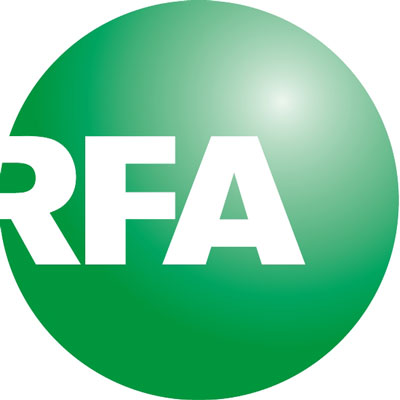
Philippine President Rodrigo Duterte has quashed attempts to investigate how members of his bodyguard received shots of a Chinese-developed coronavirus vaccine in September and October, when no vaccine had been approved or officially procured in the country to date.
An angry Duterte this week ordered Brig. Gen. Jesus Durante III, head of the Presidential Security Group (PSG), and members of the elite bodyguard to “stay put in the barracks” and ignore a summons to appear before a planned Senate inquiry into the matter.
“To Congress, do not tinker with the PSG. Don’t force my hand. I am not keen to have Durante testify,” Duterte said in a nationally televised cabinet meeting that went late into the evening on Monday.
“They did this to protect me and themselves. As a president, how could they guard me if they have to maintain a four-meter [13.1-feet] distance from me?” the Philippine leader said of the inoculations among members of his security corps, who are drawn from military ranks.
Durante and his men had the right against self-incrimination, the president said, as he warned the legislature against forcing the soldiers to testify.
“I do not think it will be good for you and for me. It would not be healthy for everybody,” he said. “We will have, not really a crisis, but there will be a nasty thing that will transpire.”
After Duterte’s late-night comments, the military said Tuesday that it had cancelled its own inquiry into the matter. The controversy erupted last week after the president said he knew of several soldiers who, a few months ago, were given doses of a vaccine developed by Sinopharm, the Chinese state-owned drug maker.
Maj. Gen. Edgard Arevalo, spokesman for the armed forces, said in a statement that a scheduled “fact-finding investigation” had been called off.
“This comes in the light of the recent pronouncement of the Commander-in-Chief and President Rodrigo Duterte,” Arevalo said.
Durante, the head of presidential security, confirmed Duterte’s earlier statement about soldiers receiving the vaccine, but refused to give details about the drug maker’s name and how they obtained the doses. Durante had said he was willing to be investigated for allegedly violating the country’s laws.
Last week, the Army chief, Lt. Gen. Cirilito Sobejana, said the approval to use Sinopharm’s vaccine came from Duterte himself. In late December, the president also stated that “nearly all soldiers have been injected” – an assertion which he appeared to deny on Monday night.
“I don’t know really if they were really injected with the vaccine,” Duterte said on Jan. 4. “What brand? I don’t know. Do not presume to say there was a cover up.”
At present, the Philippine Food and Drug Administration (FDA) has not yet green-lighted any drug for inoculating people here against the coronavirus disease.
The FDA, the defense and health departments had all expressed surprise in learning about the immunizations of the presidential guards.
For his part, FDA chief Erick Domingo said that the distribution of black-market vaccines could pose health risks and potentially undermine a national vaccination program.
Next to Indonesia, the Philippines is the second country in East Asia hardest hit by the global pandemic. As of Tuesday, nearly 479,700 coronavirus cases had been detected nationwide with a death toll of 9,321, according to data from disease experts at Johns Hopkins University in the United States.
Senator presses for inquiry
The Philippine legislature enjoys a separation of powers with the executive and judiciary. As an independent body of government, Congress can also launch investigations or summon officials.
Sen. Franklin Drilon, a senior lawmaker with the opposition, said Tuesday that Duterte did have executive privilege to stop the Presidential Security Group from testifying before the Senate.
However, this should not stop the Senate from investigating the “unauthorized China-made COVID-19 vaccines in the country,” he said.
“There is no preventing Congress from eliciting information in aid of legislation from other resource persons. Congress can exact information on matters that can help it craft better legislation,” Drilon told reporters.
This was not the first time that executive privilege was invoked, Drilon said, noting that former President Gloria Macapagal Arroyo had blocked all her officials from senate inquiries when she was in office in 2005.
The senator said there also were unconfirmed reports that nearly 100,000 Chinese workers employed by online casinos in the Philippines had been injected with vaccines “illegally imported into the country.”
“The Senate must exercise its mandate to look deeply into the issue in order to plug the loopholes in the law granting authority to the Food and Drugs Administration,” Drilon said.
“The Senate should continue with the hearing, especially in the light of the revelation that 100,000 POGO workers were inoculated in the country. That is illegal,” the lawmaker said, referring to employees of Philippine Offshore Gaming Operators.
That claim was made on Monday by Teresita Ang See, a prominent anti-crime advocate here, who told an online forum about the rampant inoculation, which, she said, began in November.
She said the source of these vaccines was likely the same one from which members of the presidential bodyguard received their shots. The vaccines were legitimate, she said, adding that the issue was being blown out of proportion.
When asked about the purported Chinese vaccines, presidential spokesman Harry Roque on Monday said he did not have information on the claims.
But if it were true, “there will be 100,000 less possible carriers of the coronavirus,” Roque said.
Reported by BenarNews, an RFA-affiliated online news service.